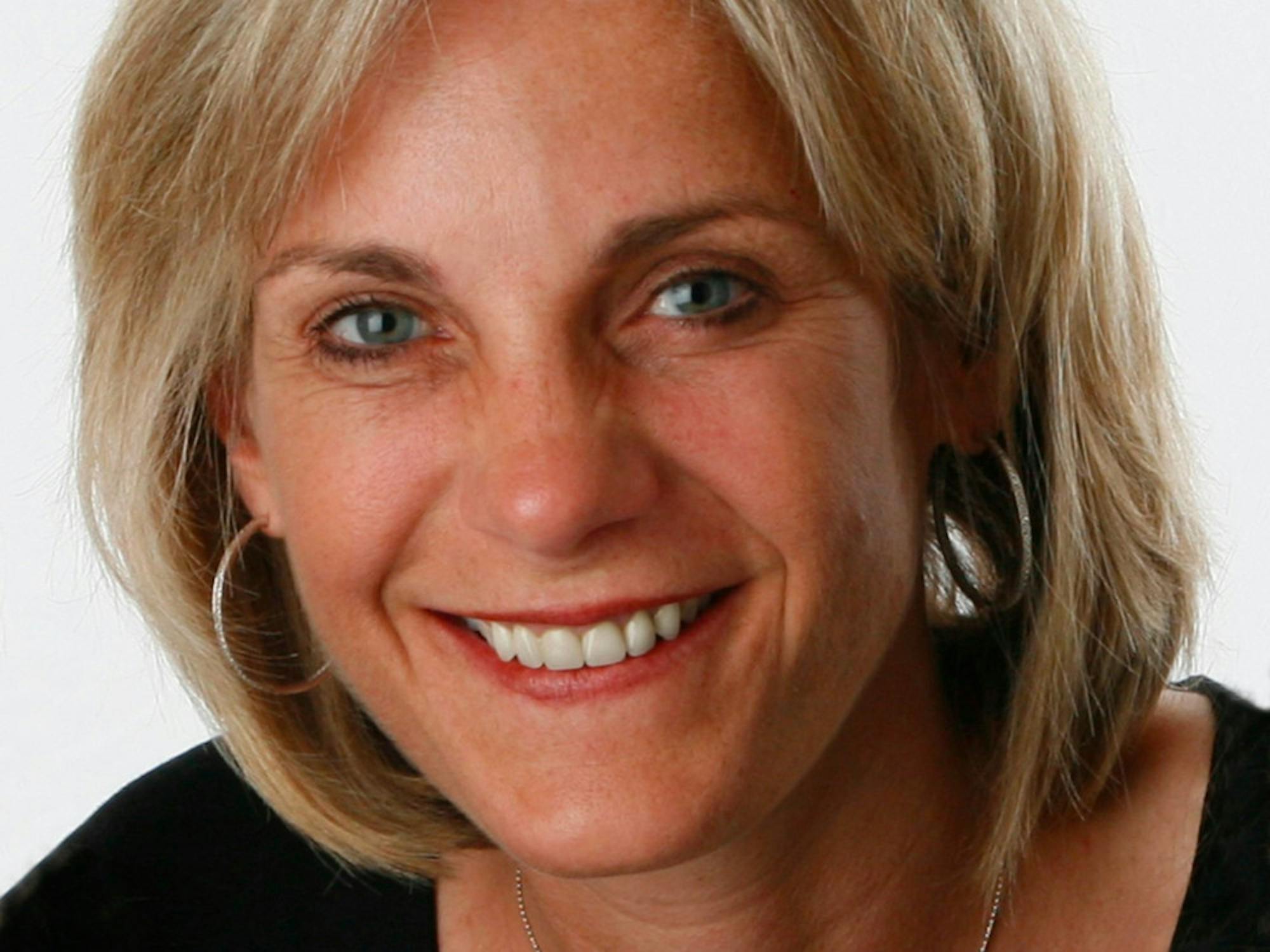The Tufts Financial Group (TFG) hosted a question and answer session with alumna Sue Decker (LA '84), the founder and CEO of the social networking startup Raftr, on Tuesday night as part of their speaker series.
Decker, who received her undergraduate degree in computer science and economics at Tufts, went on to Harvard Business School and has since served as the president of Yahoo! from 2007 to 2009 and as well as a member on Pixar Studios' board of directors before it sold to Disney.
Junior Jillian Kleiner, president of TFG, led the question-and-answer session. In an interview with the Daily after the event, Kleiner, a junior, mentioned that she found Decker's experience in equity research and at Yahoo! to be interesting.
Decker spoke of her initial hiring at Donaldson, Lufkin and Jenrette (DLJ), an investment company based in New York, as an equity researcher. Decker said she had always been interested in the stock market.
"I actually took an Ex College class on stocks and bonds, so from the very earliest time as a [first-year] I was interested in the stock market," Decker said. "I really liked the idea of understanding a company and what creates value."
Given this background, Kleiner asked what initially drew Decker to equity research, to which Decker responded that her father's influence on her as a portfolio manager initially gave her the desire to pursue this career.
Decker also explained that the tangible nature of success in the stock market attracted her.
"It's about building your brand ... this is a job where how strong you are as an analyst is very measurable based on the feedback from clients," she said.
Decker also emphasized that creating a personal brand was important for young people interested in finance.
Decker moved on to explain how she got involved with Yahoo!, saying her career at DLJ and the burgeoning internet market of the mid-1990s introduced her to the Yahoo! team, leading her to be an analyst and, eventually, president of the corporation.
"I will say that was a really tumultuous period," Decker said. "In our case ... this is now 2005 to 2010, the iPhone comes out ... mobile's changing and Google's rising."
Decker stated that, at this point in time, Yahoo! began to be defined as inferior in relation to these other companies. Ultimately, she said, these and some differences between her and the corporate board caused her to leave Yahoo!.
Decker moved on to detail what inspired her to get involved in so many companies and create the Raftr app.
"I think the idea of reinventing yourself is for me ... exciting because every time I've done something new, I've been starting from scratch. I wasn't very good at it the first time and then it really worked out and got better," she said, adding that her career followed a trajectory from being an analyst to being a leader at Yahoo! to finally being a "leader of leaders" by serving on corporate boards.
Decker added that she was ultimately inspired by corporate boards where founders were still involved, leading her to start her own company.
"I think there's an ethos when the founder's involved," Decker said. "I think when the founder is still involved in an industry ... it's probably a growing, vibrant industry so I thought, what about starting something from scratch?"
Decker pointed out that Raftr was at first meant to be a more curated, less anonymous platform than Twitter or Reddit so people would spam less, and she was inspired by the rise of Yik Yak, another social media platform.
"My daughter was at Colgate [her first] year, and those of you who are seniors will probably remember Yik Yak took off," she said. "I started watching just the vibrancy of having a campus-specific social network."
However, Decker pointed out that since Yik Yak was anonymous, it quickly became a toxic platform, leading to its eventual shutdown. Decker stated that this event led her to create Raftr as a campus-focused platform to connect students and notify them of different events.
In doing research for her startup, Decker said she came to Tufts first and spoke with Dean of Student Affairs Mary Pat McMahon, who Decker said was concerned about how students wanted to connect.
According to Decker, the app is now launched at the University of Denver and Emory University, and has just signed a contract with Paris-Sorbonne University in France.
Decker added that, for Tufts, this app could be particularly useful due to the decentralized nature of Tufts' calendars. To Decker, Raftr would allow students and clubs to access events using one automated system.
Decker also spoke to her experience as a woman working in finance, emphasizing that the role of women has been shifting for some time now and this shift has included people of color as well. In particular, she spoke of her leadership on an Intel corporate board in achieving greater representation of marginalized people.
"I did take a leadership role to make sure that [Intel's] representation of women developers and people of color developers was representative of the population," she said, adding that many of the men were receptive to greater representation as they wanted to extend the opportunities they had in the workplace to their daughter.
However, Decker stressed that the bias against developers that were women and people of color was unintentional.
According to Kleiner, TFG is the largest business club on campus and focuses on finance, with different groups focusing on different aspects of business.
Bryan Pham, a member of TFG who is part of the Alpha Fund, a student-run investment fund, commented on why he attended the event.
"I go to a lot of TFG events because I'm on the Alpha Fund and I thought it was good to show support and I was interested in [Decker's] experience," Pham, a junior, said.
Sue Decker discusses finance, her new startup at TFG-sponsored event






